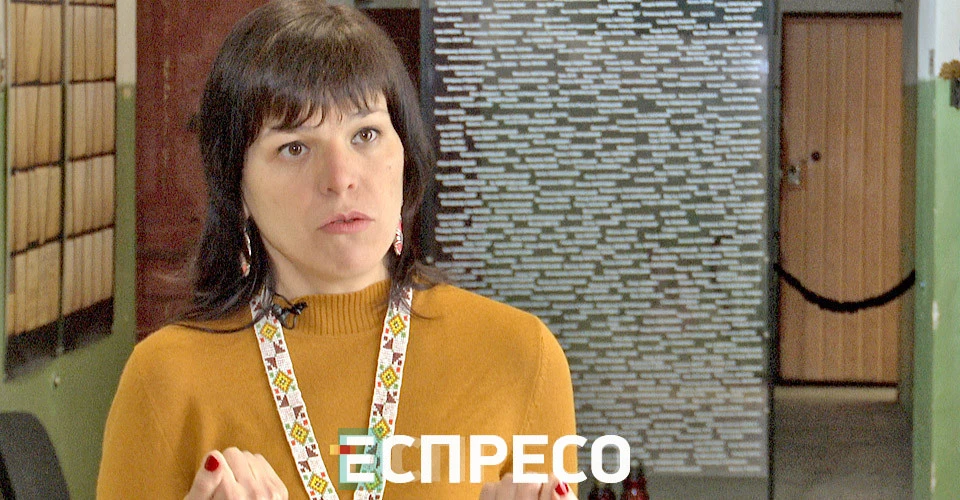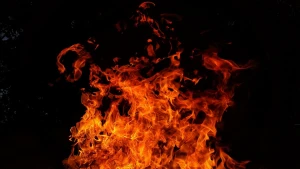
Bandera and Morawiecki ressentiment
The symbolic figure of Ukrainian nationalist leader Stepan Bandera has become a landmark for the Ukrainian army and those who oppose the Russian genocide on our land. Passions around this figure, in particular among right-wing Polish politicians and some of the regulars of the circus under the dome on Hrushevskoho Street, will calm down only after our victory over Nazi Russia
Despite the dramatic changes that Ukraine and the region have undergone since February last year, certain things remain unchanged. For example, the celebration of Stepan Bandera's birthday in parallel with the New Year and the dissatisfaction of the Polish government representatives about this. This year, both events were louder than usual - Bandera was toasted almost literally "from Syan to Don", and the Polish Prime Minister's demarche about the insult to Polish historical memory by this fact ended with the mysterious disappearance of the post about Bandera from the Verkhovna Rada website. That naturally offended Ukrainians.
“This year, parliamentary elections will be held in Poland, and the ruling party, which Prime Minister Morawiecki belongs to, is counting on the votes of that part of Polish society that lives in the paradigm of resentment.”
The reasons lie on the surface. In the case of Ukrainians, the facts and events of the war for independence naturally led to a surge of interest in national heroes. In the case of the Prime Minister of Ukraine's neighbor and ally in this war, there is reason to suspect that everything is much more pragmatic - this year in Poland will be held parliamentary elections, and the ruling party, which the Prime Minister belongs to, counts on the votes of the traditional part of Polish society.
The one that lives, in particular, in the paradigm of Poland's confrontation with almost all its neighbours, justifiably or not. Not that there are no such people in Ukraine - there are, but in the reality of war they are either not visible or they find a plane for self-realisation.
And the fact that there is such an audience - so significant in the neighboring state that the Prime Minister had to adhere to it, makes us look at the reality to which this audience actually appeals. Well, let's rise for a moment above the current concerns and move to the times when Bandera committed his "sins" voluntarily and involuntarily.
“Fierce national competition was a real, not declarative fundamental principle of coexistence of the peoples of Austria-Hungary, where Stepan Bandera was born and grew up as a child.”
And this means - in interwar Europe after the fall of empires, Austro-Hungarian, German and Russian. At least "Grandma Austria" in the last period of its existence was a real playground of nations. Tough, even brutal national competition was a real, not declarative fundamental principle of coexistence of the peoples of the "brightest emperor". Ukrainians were at war with Poles, Slovaks, Croats, Romanians and the same Ukrainians were opposed to Hungarians. Czechs could not agree with either Germans or Magyars. The Germans saw the root of evil in all Slavs, and at the same time in the Jews. The Balkans became a model of mutual national intolerance even before the First World War.
At the household level, it all looked simply enchanting - a Ukrainian tried to buy only in a shop where a Ukrainian sold, as well as a Pole. Each nationality had "its" shops, cultural institutions, theaters, reading rooms, schools (national educational societies functioned in parallel with the state education system), holidays, churches. Even universities - Czechs achieved a separate Czech university in Prague, Ukrainians fought for the Ukrainian university in Lviv for several years. It was common to divide villages into "national" parts - Ukrainian and Polish in the case of Galicia. There was a whole complex etiquette regarding mixed interethnic marriages. In relatively calm times, the inertia of a well-established imperial control machine held it all together, but the empire did not survive the war.
But the interethnic competition and conflicts - survived in quite a capable form. The realities of open interethnic confrontation in various forms became the daily bread of the region in the period between the world wars. The Second World War finally broke and crushed the last fuses that kept the situation within the framework of normality.
The Ukrainian-Polish conflict lasted until 1947 and, as one of my professors once put it, the only "benefit" of the "population exchange" and Operation Vistula was that the bloody conflict finally ended.
The Sudeten Germans were expelled from Czechoslovakia in the same 1940s. The Germans were also expelled from Poland. In short, they fought the empire so that wasn't even their spirit. Meanwhile, both Poland and the Czech Republic for thirty years after the collapse of the empire divided Silesia. The quarrel was not limited to them - Hungarians were a constant producer of claims to everyone. Everything was establishing in the Balkans until the 1990s - need I remind you of the Yugoslav wars with genocide, the siege of Sarajevo and mass rapes?
Now let's narrow the optics. For the places where Bandera grew up, the Ukrainian-Polish-Jewish triangle was of the utmost importance. So, let's look at the experience of little Stefko in specific Galicia in the context of all of the above.
“Bandera and his peers learned from the defeat of the Ukrainian liberation struggle that fierce national competition, the winner of which is free to treat the losers in accordance with their own interests and wishes, is normal, and the one who is stronger and more agile wins, and democracy and law do not work in the world of authoritarian dictatorships.”
When Stepan was only five years old, the First World War began. The front appeared in the area where he grew up four times - first, in the summer and autumn of 1914, the Russians attacked, then in the spring of 1915, the Austrians chased the Russians, then there was the approach of the front in the summer of 1917, and finally- Ukrainian-Polish war. Moreover, the arrival of each of the parties, with the exception of the Ukrainian, was accompanied by a search for disloyal ones - the Austrians hunted for "ferreters" and Muscovites, the Magyars in the army of the "brightest emperor" - for the same categories, the Russians - for "Mazepins", the Poles - for "conscious Ukrainians". The Ukrainian Galician Army was maybe the only one that did not grow systematic "golden willows". And now this Ukrainian Galician Army is losing. At the time when the situation was more or less normalized, Bandera was twelve or thirteen years old.
From all this confusion, there were several unpleasant conclusions for the democrat of that time, however, from the point of view of Bandera and his peers, completely logical. First of all, fierce national competition, the winner of which is free to treat the losers in accordance with their own interests and wishes, is normal. Secondly, the one who is stronger and more agile wins, and democracy and law do not work. During the war, they generally have a very limited effect, but the fact is that Bandera and his generation in general were indeed " born in a great hour, from the fires of war, and the flames of gunshots, We were nurtured by the pain of losing Ukraine, We were fed by anger and malice to our enemies."
The political reality of interwar Poland did not level all negative and anti-democratic experiences. In general, Polish domination in Galicia began with a several-day Jewish pogrom in Lviv, in the 1920s and 1930s Galicia became the fiefdom of the "Endeks", the most chauvinistic and extremist party in Polish legal politics. They are responsible, in particular, for the assassination in 1922 of the first President of Poland, Professor Narutowicz, active participation in the "pacification" of the Ukrainian civilian population in 1930, accompanied by terror, brutal violence and torture to death, and almost city battles with Ukrainians in 1938, numerous pogroms, murders and beatings of students and public figures of other nationalities, "percentage restriction of admission" for national minorities and "bench ghetto" for Jews.
If we take all this into account, it becomes clear that against the general background Bandera and his comrades were at least not originals. And another question arises - why does all this remain unnoticed by a large part of Polish society and a significant part of Ukrainians?
Because if we take into account the context of Bandera's activity in its entirety, we will have to say goodbye to several myths that are very important for the region in general. First of all, we have to remember the unpleasant reality for many - Austria-Hungary was an empire. Quite liberal, but still an empire. "Grandma Austria" earned the reputation of an earthly paradise solely because the realities after it were much less comfortable for everyone. And let's keep silent about the USSR, which eventually invaded all our territories after the "second thirty-year war" - even Romania and the Balkans, which were third-rate by the standards of interwar Europe, looked quite decent against it. Not surprisingly, as a result, the realities of Austria-Hungary became the object of a powerful sentiment, through which the empire of the "brightest emperor" looked like a real "golden age".
“The resentment professed by a part of modern Polish politics is the heir of the bloody and aggressive activities of xenophobes from the Polish "Endeks" in the 1920s and 1930s, which this politics prefers not to remember.”
But, despite everything, there was an unofficial "table of ranks" of nations in this empire. And the liberation struggle of all former subjects of the "brightest emperor" went hand in hand with fierce confrontation with other enslaved peoples. First of all, the immediate neighbors. A Ukrainian could come to an agreement with a Czech, but hardly with a Pole. A Hungarian could agree with the same Pole - against Czechs or Ukrainians, which once happened in 1938-1939. So, the main motivation of the alliances was "against whom are we friends?". The reason is competition between nations for a very specific land and a very specific resource. This is also why continental empires always collapse bloody and leave behind numerous landmines in the form of mutual competition between enslaved peoples. Each of the enslaved peoples in this scheme is both a competitor and an object of projection for the others - you can take out your anger for everything that the colonizer did to you.
And it was this anger and resentment that became one of the reasons for the formation of both Polish endeavour and Ukrainian integral nationalism. The Polish intellectual Grzegorz Gauden very aptly said about the "Endeks" that it grew out of the resentment of the small Polish gentry, which allowed the collapse of the Polish-Lithuanian Commonwealth. The areas of concentration of this small gentry partially coincide with the part of Poland, whose inhabitants are called by more educated and secular countrymen by censorious pejorative, designed to demonstrate the provincialism of those areas. And, as a result, "stuck" in various kinds of ressentiments.
Ukrainian integral nationalism, whose leader was Bandera, also grew out of resentment for the daily demonstration of success by victorious neighbors - success at Ukrainian expense. This is if we judge from a purely Polish perspective. However, this would be wrong, because the true meaning of "Bandera's birthday" and the reason why Bandera is not a provincial object of honor in Ukraine is that Ukraine continues to fight for its independence. And Bandera is nothing but a symbol of this struggle. One day, after the victory over Moscow and the change of generations, perhaps Bandera will become for Ukrainians what Józef Piłsudski is for some Poles and Menachem Begin is for Jews. But not yet.
Specially for Espreso.
About the author: Olesya Isayuk is a historian, Doctor of Humanities, researcher at the Center for Liberation Movement Studies and the National Museum-Memorial "Prison on Lontskoho", researcher of Nazi and Soviet repressions in the twentieth century.
The editors do not always share the opinions expressed by the authors of the blogs.
- News













































